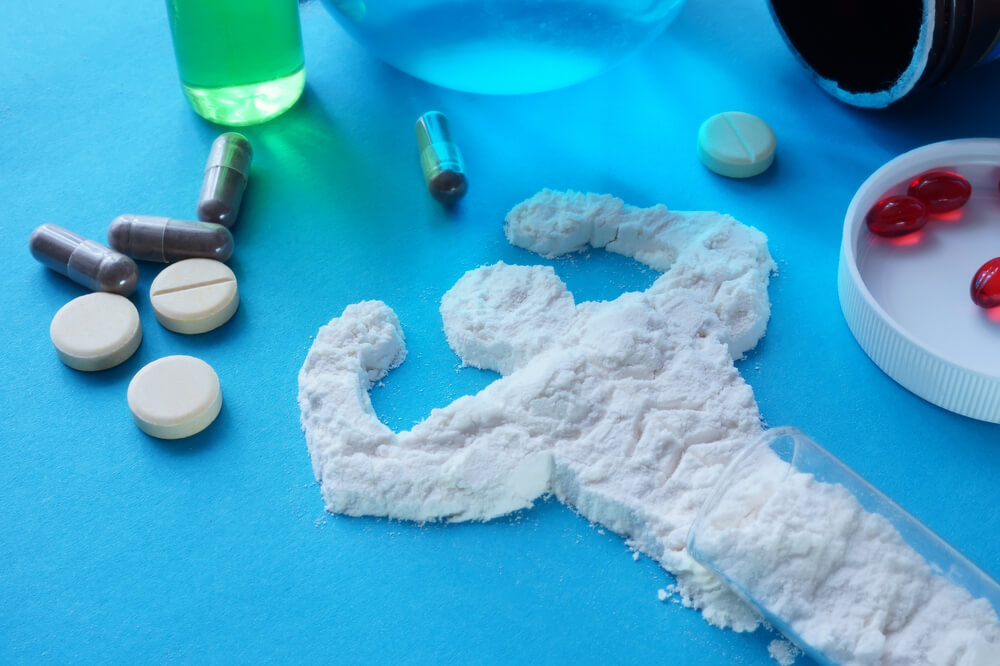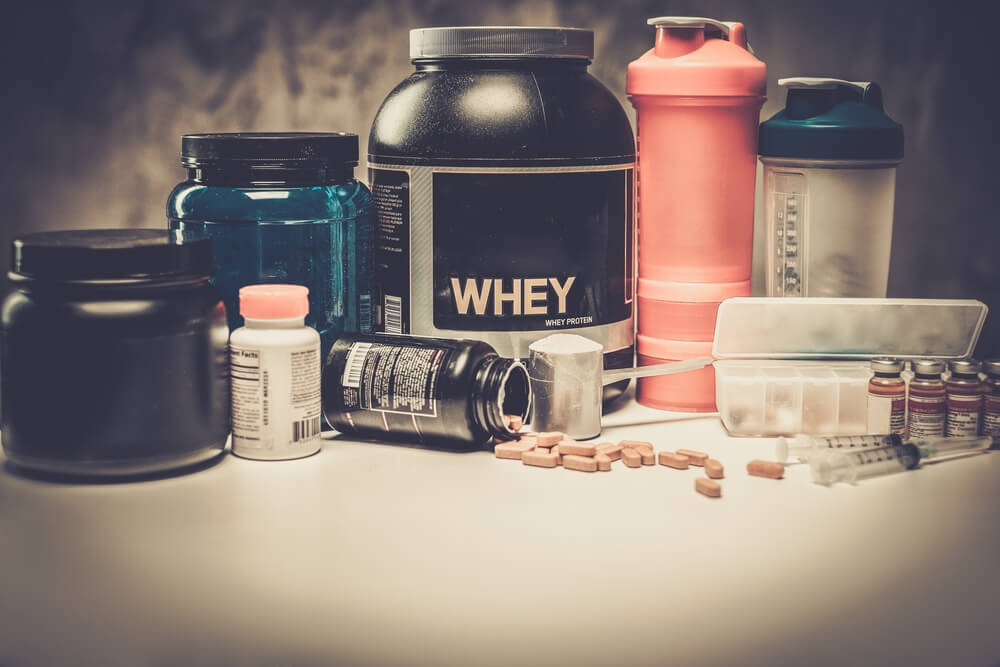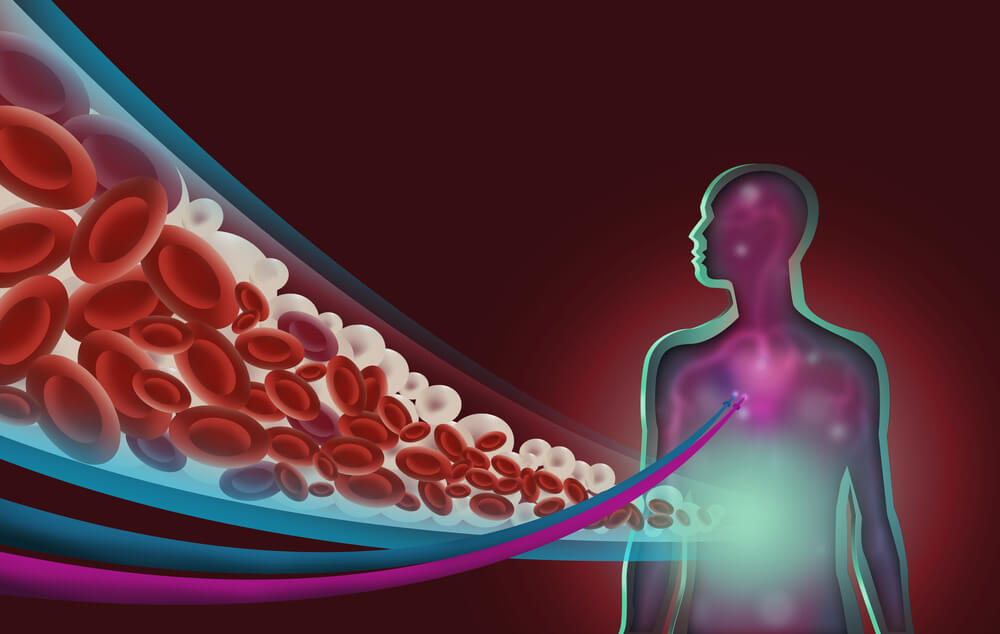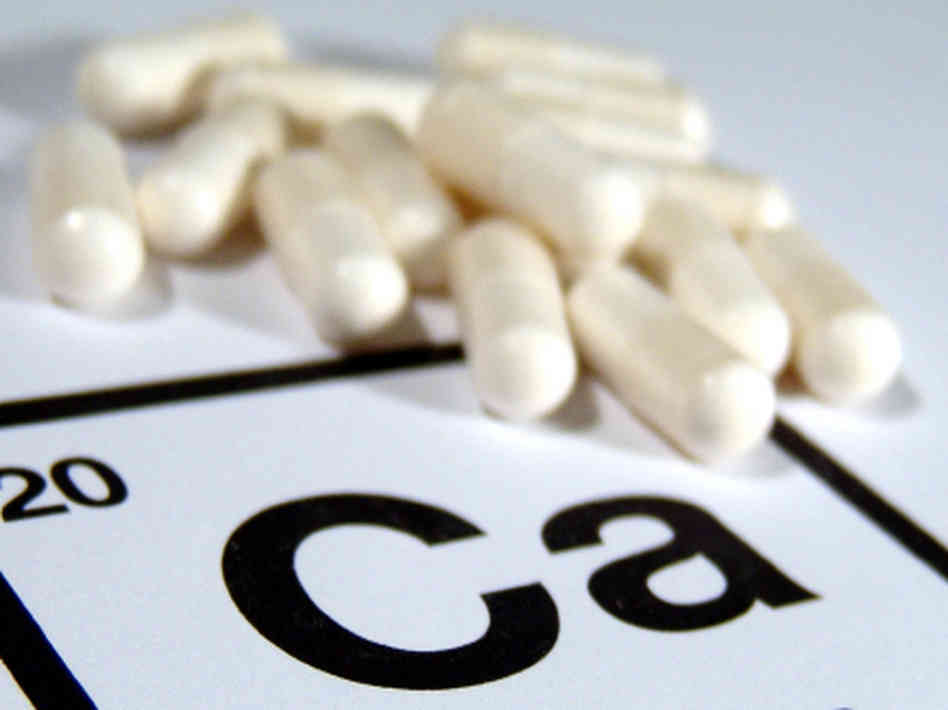
Crea-what? We get it. Creatine isn’t the most common thing. Here’s an easy guide to understanding it.
Ever stepped in a sports nutrition store without seeing creatine for sale? We thought not. Wonder why? There are lots of reasons. With over 200 studies to date, it’s one of the most researched fitness supplements out there. If you’re looking for an extra boost to enhance your performance or how to gain muscle, it may be time to try creatine. Still not convinced? We did the research. Here’s everything you need to know.
What Is Creatine?
Think creatine is fairly new? That’s a common mistake. Believe it or not, it was discovered in 1832. French scientist Michel Eugène Chevreul was the man who has been credited. Scientifically speaking, creatine is an organic nitrogenous acid that is created naturally in the human body. With that said, it can also be found in some foods. It helps to give energy to the cells in your body, especially muscle. How? It does this by causing more frequent formations of adenosine triphosphate (ATP). Essentially, creatine helps your body produce more quick bursts of energy.
The synthesis of creatine takes place in the kidney and liver and the creatine is transported in the body via blood. About 95% of the body’s total creatine is in the skeletal muscle. With the ability for muscle building stores of phosphocreatine, more creatine could help resynthesize ATP in the muscle. This could be helpful by giving more energy to the muscles and body. With this increase in energy bursts, if you use them while training, you could reap some great benefits. Sound like a good combo? We thought so…
Who Takes Creatine?
There’s a glut of supplements to choose from. Where do you start? Right here! You sometimes find in your research that each supplement can help different body types, regimens, and goals. So what types of people are compelled to consume creatine to help their needs? Athletes and bodybuilders are the most common users of these supplements. The International Olympic Committee and the National Collegiate Athletic Association both allow the use of creatine It’s widely used among pro and amateur athletes. An article by WedMD stated
An article by WedMD stated that, “according to studies, 8% of adolescents take creatine…[and] an estimated 40% of college athletes and up to half of professional athletes say they use creatine supplements.” Considering its low risks, many athletes have pounced on the chance to boost their abilities and performance by using creatine.
Who Should Stay Away?
If you exercise routinely and intensely and you have a healthy diet, then creatine can be considered. However, Jim King, M.D., president of the American Academy of Family Physicians, does not advise that those under 18 use creatine. Why? He told Men’s Health that “children are still in a growing phase, and we’re not sure what impact creatine may have on muscles and bones as they grow.” Providing supplements for children’s athletic enhancement just isn’t worth the risk.
Those who have kidney problems should also avoid taking it. Since creatine is consumed as a powder mixed with liquid, it comes out through your urine and whatever comes out through your urine passes through your kidneys. While the risks are very low, the risks for someone with a kidney condition would certainly face a higher possibility of further complications. In other words, another instance where it just isn’t worth the risk.
Who Does It Best Serve?
Another noted reality of creatine is that it’s found in many types of meat. It’s in beef, pork, salmon and tuna. Because of this, vegetarians typically find a greater positive response from taking creatine than meat eaters. There are also a significant number of people who don’t respond to creatine. After about one week of consuming creatine with your workouts, you should notice a difference. If there’s no clear upgrade, then you’re probably a non-responder. Ultimately, creatine should really only be consumed by high-performance adults who work out regularly, maintain a healthy diet and don’t have kidney problems. But beyond that, research has indicated other uses of creatine besides increased athletic performance. 
Who Else Can Benefit From Creatine Besides Athletes?
Think creatine can only help your training?
Think again…
There’s a long list of benefits. You may be surprised to learn that there have been studies on the effects of creatine beyond athletics. You may be even more surprised by the results. Research published in the Journal of Neurochemistry concluded that, “combination therapy with coenzyme Q10 and creatine produces additive neuroprotective effects in models of Parkinson’s and Huntington’s diseases.” Their study showed neuroprotective effects against dopamine depletion, as well as significant reduction in other harmful chemicals.
The research also displayed an improvement in motor performance and an extension in survival. Further research needs to be done. But, creatine provides a possibility to helping degenerative diseases such as Parkinson’s and Huntington’s. There has also been research to suggest creatine may help those with muscular dystrophy. Dr. Rudolf Kley, of Ruhr University Bochum, Germany, was the lead reviewer of a study on the subject. The research concluded that those who
There has also been research to suggest creatine may help those with muscular dystrophy. Dr. Rudolf Kley, of Ruhr University Bochum, Germany, was the lead reviewer of a study on the subject. The research concluded that those who took creatine found a muscle strength increase of 8.5% compared to those not taking it. The team concluded that the results show “short- and medium-term creatine treatment improves muscle strength in people with muscular dystrophies and is well-tolerated.” A study published in the American Journal of Psychiatry examined the use of creatine and depression. Researchers from three South Korean universities and the University of Utah conducted the study. They concluded that women battling depression might benefit from the use of creatine. In the study, participants augmented their daily antidepressant with five grams of protein. This resulted in a response to the antidepressant that was twice as fast as women who took only the antidepressant. Research published in the
Researchers from three South Korean universities and the University of Utah conducted the study. They concluded that women battling depression might benefit from the use of creatine. In the study, participants augmented their daily antidepressant with five grams of protein. This resulted in a response to the antidepressant that was twice as fast as women who took only the antidepressant. Research published in the Federation of European Biochemical Societies Letters studied the effect of creatine on IGF-1 and aging. They found that creatine use into older adulthood could negate the degenerative effects of age-related muscle wasting and maintain youthful levels of IGF-1. When combined with strength training, creatine may provide a potentially positive effect on aging by reducing the muscle waste that comes along with it. Another unexpected potential use of creatine is to increase memory retention and intelligence. In a study conducted by researchers from the University of Sydney and Macquarie University, Australia, participants were given
When combined with strength training, creatine may provide a potentially positive effect on aging by reducing the muscle waste that comes along with it. Another unexpected potential use of creatine is to increase memory retention and intelligence. In a study conducted by researchers from the University of Sydney and Macquarie University, Australia, participants were given creatine supplements or placebo pills for phases of six weeks.
The lead researcher, Dr. Caroline Rae, found that the creatine showed a positive effect, at least in the short term. She also stated, “The results were clear with both our experimental groups and in both test scenarios. Creatine supplementation gave a significant measurable boost to brain power.” If you think about it, that’s quite a list! Athletes, those with Parkinson’s and Huntington’s diseases, those with muscular dystrophy, people suffering from depression, aging and young adults all used creatine to great success.
With the exceptionally low risk presented by creatine, the research merely continues to grow in support of creatine use. When taking it doesn’t prove to pose substantially harmful consequences, people from many walks of life are giving it a try.
What Are The Low Risks Of Taking Creatine?
Anything additive you consume has potential side effects. With creatine, the typical mild cases are stomach pain, muscle cramping, diarrhea and nausea. The most common tends to be muscle cramping. But, there have been minimal reports of these side effects. Also, none of these risks are dangerous to your long-term health and are statistically unlikely to occur. As previously mentioned though, those with kidney problems and under 18 years old shouldn’t be taking it. All people respond differently to any type of medication or supplement. Be smart. Talk to your doctor about your specific body type. Mention what you’re looking for to be sure that trying creatine is the right step for you. 
What Can It Do For Me?
Now you know the basics of what creatine is, who uses it and the potential risks. What are the actual benefits of creatine for an athlete or fitness buff? Good question. Plenty.
Better Aptitude And Performance
Studies from the Medicine and Science in Sports and Exercise journal show that creatine causes muscle fibers to grow in your body. Creatine phosphate supplies muscles with energy to ensure they don’t fatigue too soon. More energy means more strength in muscle contraction. This allows you to perform more reps, sprint faster and be more forceful. Sounds good to us!
Builds Muscle
Creatine’s properties cause muscle cells to inflate, creating a stimulus for protein synthesis and a heavily muscled appearance. But, it’s important to be distinctive here on the heavily muscled appearance affect. Creatine does cause undisputed weight gain. This gain is mostly water weight. You must workout when using creatine. That’s how it helps you. When you consume the added creatine and workout, your body utilizes the muscle volumizing properties and works to build your muscles. But, if you slack off, you’ll merely notice a distasteful water weight gain you don’t want. Stick with the program!
Improved Anaerobic Capacity
In a 2002 study, those using creatine had an increased total body mass on average of 0.9 kilograms. They also had a 6.6% increase in thigh volume and better performance in all six sprints. The research concluded that the participants’ anaerobic capacity had undoubtedly been boosted by the use of creatine.
Bone Healing
Research conducted at the Institute of Cell Biology in Switzerland found that creatine provides a successful added therapy for bone fracture healing and the treatment of osteoporosis. Their research showed that creatine increased the activity of alkaline phosphate. Of course, this is important for bone growth. This means there is high potential in the healing effects of creatine on bone.
Enhanced Recovery
Want enhanced recovery? Good news! That was also looked into. The effects of creatine on muscle cell damage were examined to determine if creatine could help with recovery. The study showed that participants taking creatine experienced reduced muscle cell damage and inflammation. They concluded it could help recovery following intense exercise.
What Kind Should I Take?
What’s the best form to use? Powder creatine is the best creatine, most common and safest form to consume. Studies have shown that liquid creatine and creatine ethyl ester are unstable. Our advice? Don’t even go there. Creatine powder is your best choice. Chad Kerksick, Ph.D., assistant professor of exercise physiology at the University of Oklahoma, recommends mixing creating powder with fruit juice for best results. This balances the sugars with the creatine and the sugar in juice will help maximize the creatine uptake into the muscles. 
Conclusion
Overall, the studies say that creatine will not positively affect everybody. Sadly, it’s not a miracle powder to mix in your fruit juice and make you Superman. But, it does provide the possibility of being Popeye’s powerful spinach with very low risks for trying it. It will improve your muscle building effort. It’ll also give you more energy and the boost you’ve been looking for to push past your plateau.
Who wouldn’t want that?
Smash the competition with an edge that doesn’t compromise your morals or health. Creatine helps give you a safe attempt to jump higher, sprint faster and lift heavier. Keep in mind: It may work better for those who eat less meat. And, it may be lost on some body types. But, in the end, when you feel like you’ve hit a wall in your training, it couldn’t hurt to try it. The research backs that up. Creatine could be what’s needed to give you the jumpstart you need to go faster and further. By Alyssa Bright
By Alyssa Bright
Latest posts by Terry M (see all)
- Garage Gyms - Aug 1, 2018
- Kettlebells – Why They Should Be Added To Your Routine. - Jul 24, 2018
- Weight Belts: What Are They Really For? - May 31, 2018










[…] By Terry Asher […]